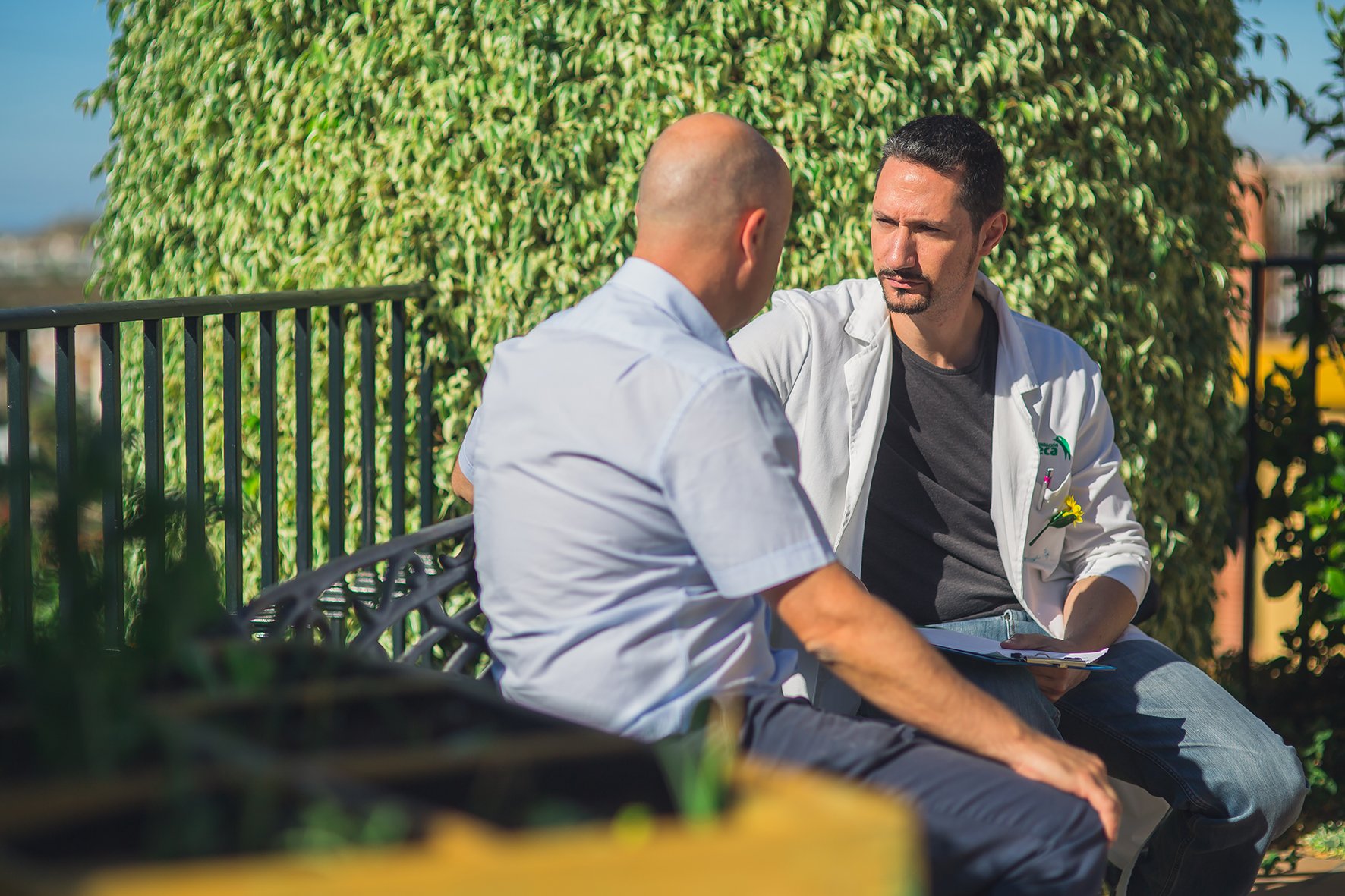Ismael Jamal, CUDECA EAPS psychologist
How long have you been with EAPS?
My name is Ismael Jamal and I have had the privilege of dedicating myself to the wonderful work of Psycho-Oncology and Palliative Psychology for sixteen years. I started working in the programme of Comprehensive Care for People with Advanced Diseases of the "La Caixa" Foundation from its beginnings in 2008 and, also under this programme, in the CUDECA Foundation since 2016, after a great previous experience in 2013, in which I "got hooked" to their way of working at that time.
What is your current work?
I currently develop my work integrated in three Adult Home Care Teams and the Paediatric Palliative Care Team, all of them from CUDECA Foundation, composed of medical, nursing and social work professionals, being also in coordination with the physiotherapist of the Rehabilitation Programme of our centre. I would like to highlight the Paediatric Palliative Care programme in which, after seven years of professional work, is currently experiencing a qualitative and quantitative leap in its progress, with the improvement of care for children, together with their families, being a firm and decisive commitment of the CUDECA Foundation.
In all these teams, we attend in an integrated way to the needs of patients and their families who are going through such a delicate and important stage in their lives as the experience of an advanced disease. In addition, the psychological work in palliative care extends to the care and prevention of complications in the grieving process. To this we must add our support activity in psychological aspects to the rest of the professionals in the teams, as well as teaching tasks in different types of centres: both in health institutions (professionals in hospitals, health centres and subsidised health centres in the province), and in professional and university training centres (vocational training, university degrees and postgraduate courses, mainly at the University of Malaga), professional associations, etc., and also in all the health and social professions in our system, and even in organisations in other countries. Research in these fields, with the aim of improving the work we do, also occupies a prominent place.
All this work involves constant growth and learning, received from colleagues, students, institutions, etc., but, above all, from the people we care for in such a sensitive and important circumstance as the end of life. In spite of the lability and complexity of the moments and situations present in this process, of the continuous exposure to suffering, it is impressive and enriching how, after receiving so many teachings from those who face this stage of life, they also transmit their gratitude for the help received in assisting them with their needs and difficulties. It makes you feel part of a whole, of a community that supports and cares for each other, and this is extraordinary. Because a responsible and mature society should always take care of those who are part of it, especially when they need it most.
For you, what has psychological and social care meant for both patients and their families in the "la Caixa" programme of Comprehensive Care for People with Advanced Illnesses?
Since its implementation in 2008, it has been a turning point and a fundamental advance in the extension of palliative psychological care throughout Spain. Until then, there were many voices and organisations that demanded the professional figure of palliative psychology as a fundamental and integrated part of interdisciplinary palliative care teams (Ministerial and Autonomous Regional Strategies, Scientific Societies, Patient and Family Associations, etc.) but its implementation was neither homogeneous nor sufficient in most of the territories. The CUDECA Foundation was clear about this from the beginning and had this figure in its teams, but the reality was not the same everywhere. With the introduction of the "la Caixa" Foundation's programme of Comprehensive Care for People with Advanced Illnesses, there was a turning point in the possibility of patients and their families having effective access to this psychological care. At CUDECA itself, it meant an enormous advance in the development and scope of psychological care, with the incorporation of more professionals in this discipline and the opening of different lines of action, thanks to the aforementioned programme of the "la Caixa" Foundation.
Subsequently, the programme increased its extension and implementation in 2015, opened new lines of action such as the residential care programme in 2021 and, recently, as of this year, has once again extended its professional care coverage, being present in all the provinces of Spain.
It is true that there are still enormous challenges and areas for improvement in the scope and extent of palliative psychological care in order to achieve a real preventive approach that most effectively minimises the possible suffering of patients and their families at this time of life. But it can also be categorically stated that without the presence of the "la Caixa" Foundation's programme of Comprehensive Care for People with Advanced Illnesses over the last 15 years, our reality and the goals achieved in order to provide this care would be enormously different - in a clearly negative sense - from what they are today.
At present, the "la Caixa" Foundation continues to advocate excellence and quality care for all people suffering from advanced diseases and their loved ones. A clear example is its support for the Spanish Society of Palliative Care (SECPAL), the Spanish Society of Paediatric Palliative Care (PedPal) and the Spanish Society of Psycho-oncology (SEPO) in their application to the Ministry of Health for the creation of the National Health System Speciality of Psycho-oncology and Palliative Psychology, endorsing this initiative together with other prestigious organisations that work in the care of patients and their families in these processes.




